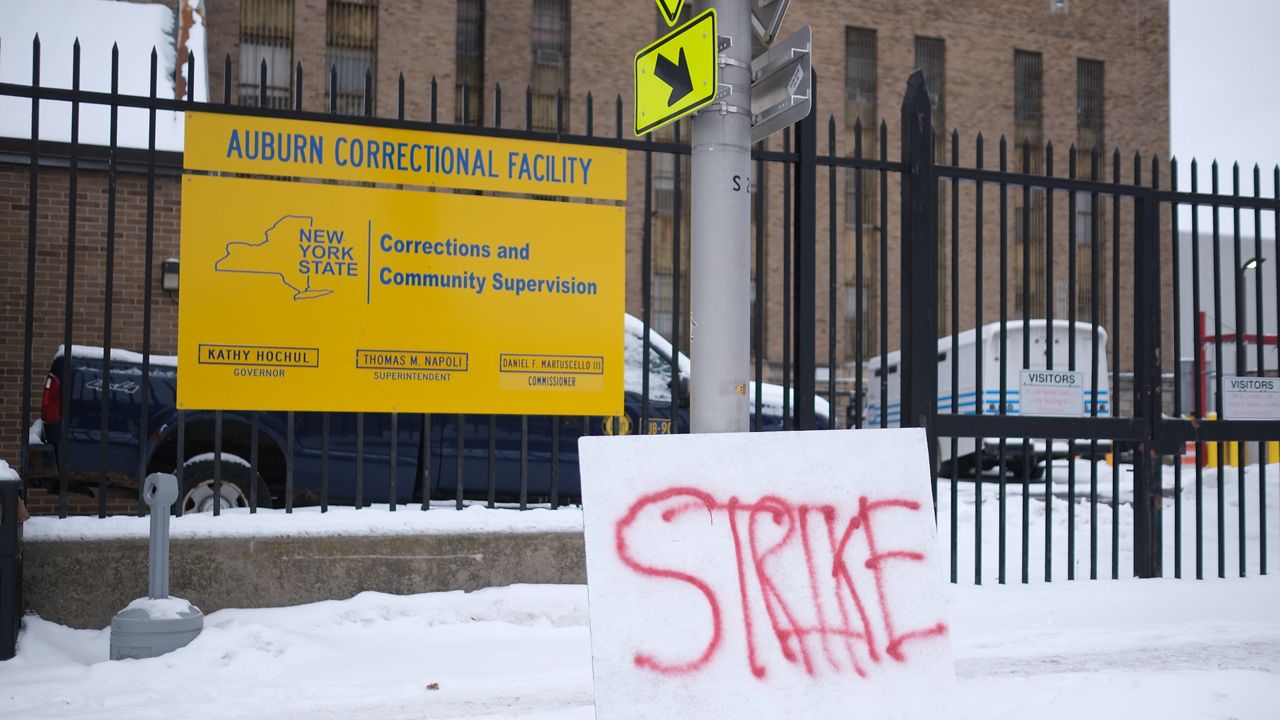Construction is underway on a historic landmark in the village of Johnson City in the Southern Tier. Crews are working to repair the “Square Deal Arch,” which was built in 1920 to honor a man who made history.
Hundreds of cars drive by it every day, often without paying attention. But the simple concrete arch, which is now undergoing a renovation, stands as a reminder of one the most pivotal moments in American history.
More than 100 years later, it’s a story that often goes untold. But to understand its importance, we have to go back to the turn of the century.
With 40 factories in the Southern Tier, the Endicott Johnson Shoe Corporation, was producing more than 50 million pairs of shoes a year.
"Every aspect of shoe production, from the raw leather coming in on their own railroad cars, tannery operations, lasting stitching," said Gerald Smith, executive director of the Tioga County Historical Society.
By the 1920s, more than 20,000 people worked for E.J. The man behind it all was George F. Johnson, a pioneer of his time.
“He was a man that I always wondered why he didn't get enough credit for what he did. He was a real high-end character as far as his generosity,” said Rob Salamida, whose grandparents worked for Endicott Johnson.
By the 40s, Johnson’s company was the leading provider of footwear for the U.S. military.
The E.J. boom would expand worldwide.
"George F. Johnson actually literally ran out of U.S. citizens to work there and was advertising in European newspapers, 'please come here, there's a job waiting for you.' And we all know the 'Which way, E.J.?' story," said Smith.
Thousands of immigrants would set sail to the "Triple Cities,” most of them with little-to-no money in their pockets, dreaming of a better life.
"In this area, they say, ‘which way E.J.?’ And I was one of them. The original," said Frank Petrilli, former Endicott Johnson employee.
For Italian immigrants like Petrilli, it was the first step in building a better life.
"I think at the time it was a good springboard. A lot of people, they learned English and then they went in the construction. They went to many other fields," said Petrilli.
But for so many, Endicott Johnson was much more than a place to work.
George F. Johnson understood just how important these immigrants were to his company, and he wanted to give back.
He'd create the "Square Deal,” one of the first labor policies in the nation to offer medical benefits to employees and even a chance at home ownership, a first for companies at the time.
"They realized that by doing good, they were benefiting not just the employees, but the community they lived in. George F. Johnson said he should give back to the community and all the benefits should be for everyone because it was from the community from which he got his workers," said Smith.
The Square Deal changed the way the nation views labor today, with something else we all may all take for granted.
It was Johnson who helped establish the eight-hour work day, soon adopted by companies all over the nation.
"They realized they were less tired. So they're more productive. Everybody works out and makes more money," said Smith.
In 1920, E.J. workers saved up money to fund two arches honoring Johnson and the Square Deal.
With a restoration, that memory lives on today.
“He left, he took a risk, he came here. He worked hard. And these are the everlasting fruits of what one person did. And if he can do it, some sixth-grader or eighth-grader can be the next George F. Johnson," said Salamida.
While the glory days of Endicott Johnson may be in the past, former workers say the American dream is still alive, especially in upstate New York.
"I've been all over. I love this area. There's a lot of opportunity up here. You have to go get it," said Petrilli.
Along with “the Square Deal,” Johnson built six carousels throughout Broome County, which all remain free to ride today.
He was also the financial advisor to Franklin Roosevelt.








